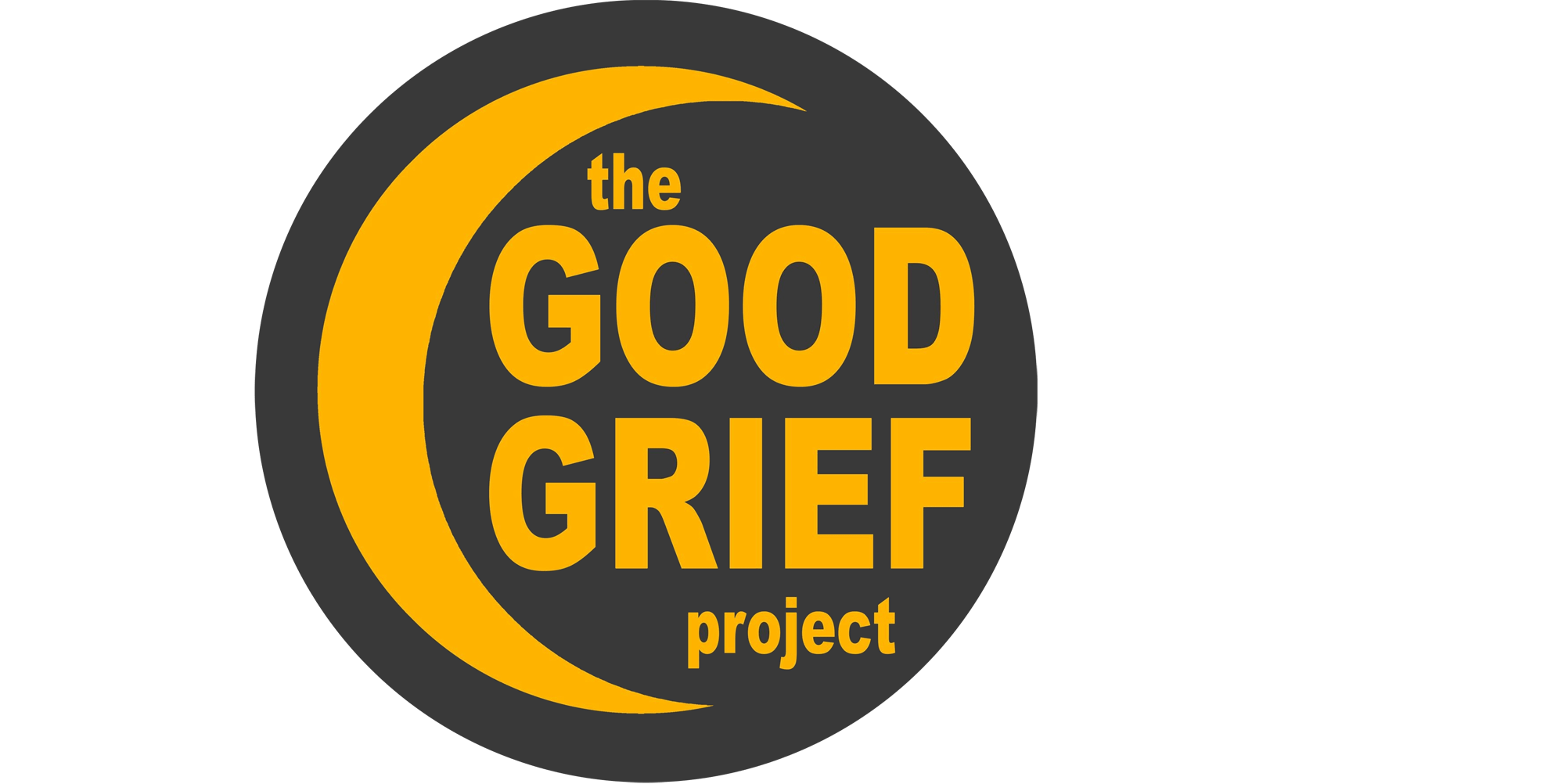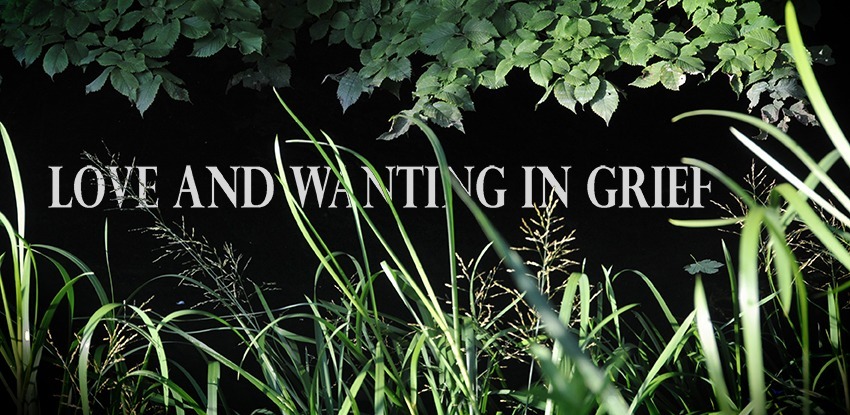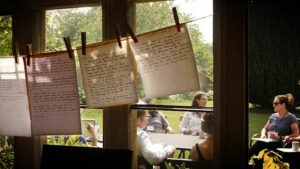Have you found your way to our new FaceBook page yet? Maybe you’ve come here from that page. Whichever we’re delighted that you’ve found a connection.
One of the challenges of opening up conversations about grief is to try and be dispassionate in what is often a highly charged arena. The people who know most about grief are those that have experienced it first hand – it’s deeply personal so when people disagree with your view it’s easy to take it personally. Not something we want to do.
Within days going live with the new FaceBook page we received this comment:
“In my experience grief is not love; it is wanting.”
This came with an assertion that it is a mistaken and self defeating for bereavement charities like Cruse Bereavement to claim that: “we cannot recover from grief but can only learn to live with it”. This philosophy, he continues, is unhelpful and untrue. “If it were true we would all be destined to suffer from the debilitating effects of grief for the rest of our lives.”
A completely opposite view then to our own approach:
“Grief is the form love takes when someone dies.”
Our correspondent has had many bereavements to deal with and we value his insights but because they differ in very many real ways from our experience and understanding of grief, I hope he doesn’t mind us taking them as a good opportunity to clarify some of the ideas that have come to form the basis for our work. The thread of this discussion can be seen under Visitors Posts on our FaceBook page (on the right hand side of the post page and easily missed).

Along with Cruse, The Compassionate Friends and many other bereavements networks we do believe that grief, especially the grief that we have for a dead son or daughter is here to stay. It’s not something that goes away with the passing of time, though it is indeed a condition that we can learn to accept, to live with, even to cherish as an active (and we would say creative) component of our new selves.
WHAT IS GRIEF?
Maybe people have different definitions of what we actually mean by ‘grief’. Traditionally of course grief is understood as a painful emotional response to loss, especially to death of a loved one and is characterised by intense sadness, distress and anxiety. It is also seen as time limited.
But this view of grief as something that we necessarily pass though in order to re-establish a normality by which we can then function again as productive members of society is only partly true as far as I am concerned.
Sure enough the rawness, the incomprehension and the pure gut wrenching emptiness that I felt in the months immediately after Josh’s death has lessened to some extent. I can write about my grief, make films about grief, and hold memories of Josh in ways that are much easier now six years have passed. But similar to the ways many other life experiences still inform my sense of being (sexual abuse as a child, falling in love, other deaths) so too has the death of my son. I am not the same person I was before Josh died – I have been changed by his death and by what I call my grief – and I am OK with that. I no longer feel the shame of being abused and I am not ashamed to say that I am a grieving dad. And as a grieving parent, I can both laugh and cry. In my grief I can get depressed and I can jump with joy. My grief is me and I am my grief. It’s all part of who I am – complicated for sure – but no more or less than others who have known trauma or loss, which is if you think about it, most of us.

LOVING AND WANTING
Our correspondent writes:
“Grief is the pain we cause ourselves when we want to be with someone we cannot be with. Love, rather than being grief, is actually the antidote to grief…. Wanting is selfish and immature whereas love is true selfless maturity.”
Translated in the way loving and wanting manifest themselves in my grief, this would mean my wanting Joshua not to have died, to still have his life, is a selfish egotistical desire where as my loving Joshua would be to truly let him go in a properly grown up way. The difference here, in my opinion, only has value if we hang on to the idea of grief as a passing phase – at which point my continuing to want Josh to still be alive is almost the same as not accepting his death and after time would come to be seen as just silly. My love for him would still be there of course as a marker of the maturity I have achieved by surviving my grief.
But I don’t and I haven’t experienced my grief as a passing phase. Neither is my wanting nor my loving some transitional affectation.
More to the point the pain of my grief is not self inflicted. How could it be? It just is. It may lessen over time along with with a growing acceptance of the fact of his death. But there will be many times when I will still be caught short as reality again stabs my consciousness and disrupts the auto pilot of my waking hours. Acknowledging that reality is painful but living with it is not wallowing or a retreat into self absorption. In my view there is nothing at all problematic about holding onto pain as a way of staying connected. Torment of course is another matter – if you are tormented by your grief to the extent it stops you from functioning, or it drives you to drink or worse to thoughts of suicide, then in a way you have allowed the pain of loss to stay in control. Grief for me is very much about living with the pain and finding a way to integrate it into our lives.
When Jane was giving birth to Joshua we had this quote from the I Ching very much in mind –
“Rain, after all is only rain; it is not bad weather. So also, pain is only pain; unless we resist it, then it becomes torment”
I think this is true of our grief too.

Do we need to walk through the fire to stop wanting and start loving? Surely wanting and loving are just two sides of any human relationship – the give and take of regular human interaction.
My own understanding of the social animal we call human is that we want and need a few basics for our survival – food, shelter and attachment. As well as a decent calorie input and a roof to protect us from a hostile environment, we need to form relationships with others. We need to form attachments (it’s best if they are loving attachments) both with in the group for cooperative production as well as dualities for propagation and the survival of the species. We have needs and we need our needs met – both wanting and loving are necessary to successful attachment, to successful human relationship. And they are not in opposition to each other. One is not good, neither is the other bad.
A problem of course arises when one side of a relationship disappears or dies. The attachment we need as a social, familial animal is now broken and that need now becomes unfulfilled – we can no longer give love nor receive it. Our grief for this loss can be truly destructive if only because the death of someone we love also provokes a fracture in our own sense of ourselves, in our identity, in who we are as brothers, sisters, sons, daughters – in who I am as a father. Our response to this and how we integrate our brokenness into the rest of our lives could be assisted by how we understand our notion of self.
BROKEN ATTACHMENTS
I’m wondering if in our very modern world in which the capitalist model of production has tended to divorce us from collective ways of working, imposing competition and individual self advancement as measures of success, that our sense of self has been individuated to a degree that we see our selves as being more separate than as part of a whole. Society tends to value the uniqueness of our individual identities over and above our connectedness and the universality of our experience. And there’s a knock on effect in the way society then expects us to grieve and the way the bereaved themselves will accommodate their loss, although this is probably most true for bereaved parents, siblings or anyone bereaved by the untimely death of a love one.

If we see ourselves more as unique separate identities rather than as part of a continuum with the rest of humanity, then this will affect the way we grieve, the way we deal with loss and the way we mend our brokenness. If we see ourselves as a separated self, alone in our exclusiveness, then we can survive without the other in the belief that nothing of own self has been actually lost. Not only that we can endure the loss knowing that our mourning will be a finite process with a final letting go signalling a healthy outcome to our grieving journey.
Of course it doesn’t always work out like that – in which case an extended or unresolved grief can reach the stage in which it will be seen as ‘complicated’ or ‘pathological’ requiring medical or therapeutic interventions.
And the reason why it doesn’t work out like? Maybe that’s because the experience of the griever has more in common with a sense of ourselves not as ‘individuated’ but as ‘relational’ beings at which point they will feel the death of a loved one as a loss of part of their own ‘self’. When Josh died, I suspect that all those who knew him, all those who had any kind of relationship with him, felt that something inside of them died as well.
They too had been changed by his death, not for a moment but forever. And there’s nothing unnatural about that.
CONTINUING THE BOND
Rather than moving on or letting go on the one hand, or wallowing on the other, many experts in the field of trauma and loss now see grief potentially as a coping mechanism in which it is possible to maintain an on going relationship with the deceased, primarily by reconstructuring the narrative of our lives. In our search for meaning we look for a new way of telling and sharing our story. This has become known as ‘continuing the bond’. For us this is not a denial that our relationship with Josh has changed forever but it is a way of honouring him and the significance he will always have in our lives.

I will admit to be somewhat confused by this idea of a continued relationship with Josh until I realised that much of what we do and have done – our photos, films, various rituals, our websites – these are ways, not merely of keeping him and his memories alive, but of validating both his life and his death and giving them meaning in what feels like a very uncertain world.
As we noted in a previous post “that our ongoing lives have been transformed by Josh death is beyond dispute. It will be the deep inner work of reframing our ‘self’ in relation to others that will make them worthwhile once more.”
My understanding of my grief is not that it is a loveless moment of suffering but a new condition that informs much of who I have now become. It is not passing phase, something that I will get through. Neither is it an always painful, tormenting or saddening experience. It is actually full of new discoveries, new adventures and new joys.
And that’s why we think of grief as love. And because grief is also about healing a broken attachment it also answers to a basic human need to be active and to be creative. How we do that is in many ways still unanswered but that is what THE GOOD GRIEF PROJECT is all about.
Thank you very much for reading
Jimmy (January 2017)

LINKS (support and understanding for those in grief)
THE COMPASSIONATE FRIENDS – a peer to peer network of bereaved parents, grandparents and siblings in the UK
THE COMPASSIONATE FRIENDS USA – same thing in the US
CRUSE BEREAVEMENT CARE – a leading bereavement charity in UK
CHILD BEREAVEMENT UK – supports families and educates professionals when a baby or child of any age dies or is dying, or when a child is facing bereavement.
DYING MATTER COALITION – A coalition of 32,000 members across England and Wales which aims to help people talk more openly about dying, death and bereavement.
NATIONAL COUNCIL OF PALLIATIVE CARE – umbrella charity for all those involved in palliative, end of life and hospice care in England, Wales and Northern Ireland.





